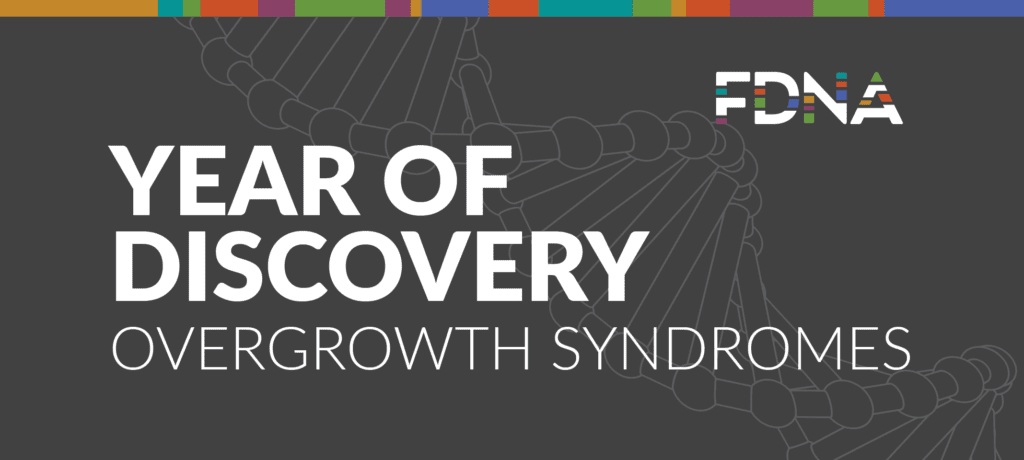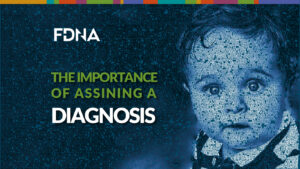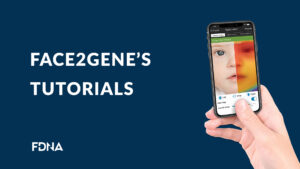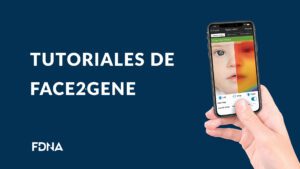FDNA’s Year of Discovery Initiative is taking on a different genetic syndrome group each month as part of its mission to accelerate advancements and discoveries for all rare diseases.
FDNA launched the Year of Discovery on February 28, 2017 to use cutting-edge technologies to advance rare disease research. In April, FDNA is partnering with Invitae and the Child Growth Foundation to help patients with overgrowth syndromes to focus on making discoveries that will help clinicians, labs and drug developers to diagnose and treat patients with syndromes classified as overgrowth syndromes. This category of syndromes is marked by abnormal increase in the size of the body or a body part, often noted at birth, that leads to health complications throughout life.
Clinicians and patients are encouraged to get involved. As an incentive, Invitae will donate one dollar ($1 US)* to Child Growth Foundation for every case uploaded in April to Face2Gene, FDNA’s free application designed for healthcare professionals to obtain a quick and accurate phenotype (physical characteristics that are associated with disease) that will accelerate the diagnoses of rare diseases. Using Face2Gene, a clinician—in just a few seconds—can highlight matching phenotypes and narrow down the possible diagnoses from thousands of rare diseases to a handful of syndromes for further testing.
“Our first month of the Year of Discovery kicked off to a great start with a number of new advances for a group of syndromes known as RASopathies,” said Dekel Gelbman, CEO, FDNA. “We encourage patients and their doctors worldwide to help make an impact this month as we focus on overgrowth syndromes. One of 10 people in the U.S. suffers from a rare disease, many with overgrowth syndromes like Sotos Syndrome. This initiative is designed to create the world’s largest source of rare disease ‘big’ data that is analyzed by artificial intelligence to make scientific discoveries that are made available to clinicians and researchers to advance diagnostics and therapeutics for rare disease patients.”
Doctors can make a direct impact by loading their patient phenotypes, facial photos and diagnoses to be analyzed by a HIPAA-compliant deep-learning technology that can make new discoveries. Patients are invited to request that their own information be included in the analysis.
Participation in the Year of Discovery campaign will work as follows:
For Clinicians:
1. Log in or register for a free Face2Gene account at http://www.Face2gene.com or through the app on your mobile device
2. Submit your patient photos, diagnoses and phenotypes for analysis
For Patients:
1. Download and fill out the patient form at http://www.FDNA.com/YearOfDiscovery
2. Submit the form to your doctor for review
3. Doctors will upload the information to FDNA’s Face2Gene platform where it will be analyzed
Learn more at http://www.FDNA.com/YearOfDiscovery or get more detailed instructions at http://www.Face2Gene.com/tutorial
Below is the list of the ten targeted disease categories for 2017. Cases from other rare diseases can be shared as well during 2017, and they will be included in the search for discoveries as resources permit.
March – RASopathies
April – Overgrowth syndromes
May – Metabolic conditions, including storage disorders
June – Eye disorders
July – Congenital heart defect syndromes, aortopathies, and other inherited heart conditions
August – Lissencephalies and other brain malformations
September – Craniosynostoses and Craniofacial conditions
October – Skeletal dysplasias
November – Seizure and epilepsy-related conditions
December – Skin disorders
Today, 30 million people in the United States are living with a rare disease. Each case added thanks to the Year of Discovery initiative will provide invaluable information that will improve the overall understanding of rare diseases, affecting the lives of millions every day.
About Face2Gene and FDNA
FDNA is maker of Face2Gene, a suite of phenotyping applications that facilitates comprehensive and precise genetic evaluations. FDNA uses facial analysis, deep learning and artificial intelligence to transform big data into actionable genomic insights to improve and accelerate diagnostics and therapeutics. With the world’s largest network of clinicians, labs and researchers creating one of the fastest growing and most comprehensive genomic databases, FDNA is changing the lives of rare disease patients. For more information, please visit https://fdna.com.
About Invitae
Invitae Corporation’s mission is to bring comprehensive genetic information into mainstream medical practice to improve the quality of healthcare for billions of people. Invitae’s goal is to aggregate most of the world’s genetic tests into a single service with higher quality, faster turnaround time, and lower price than many single-gene and panel tests today. The company currently provides a diagnostic service comprising hundreds of genes for a variety of genetic disorders associated with oncology, cardiology, neurology, pediatrics, and other rare disease areas. Additionally, the company has created a Genome Network to connect patients, clinicians, advocacy organizations, researchers, and drug developers to accelerate the understanding, diagnosis, and treatment of hereditary disease. For more information, visit our website at http://www.invitae.com.
About the Child Growth Foundation
The Child Growth Foundation is a leading charity supporting adults, children and their families with rare growth and endocrine conditions. Our mission is to support children and adults with growth-related problems, and their families, fund research into potential solutions, raise awareness of growth problems and support health professionals in the management of these conditions. For more information, visit our website at http://www.childgrowthfoundation.org.
*All donations are provided directly by the participating sponsor in such month and at its sole responsibility. Amounts may be capped to a maximum in each month, at the participating sponsor’s sole discretion.



